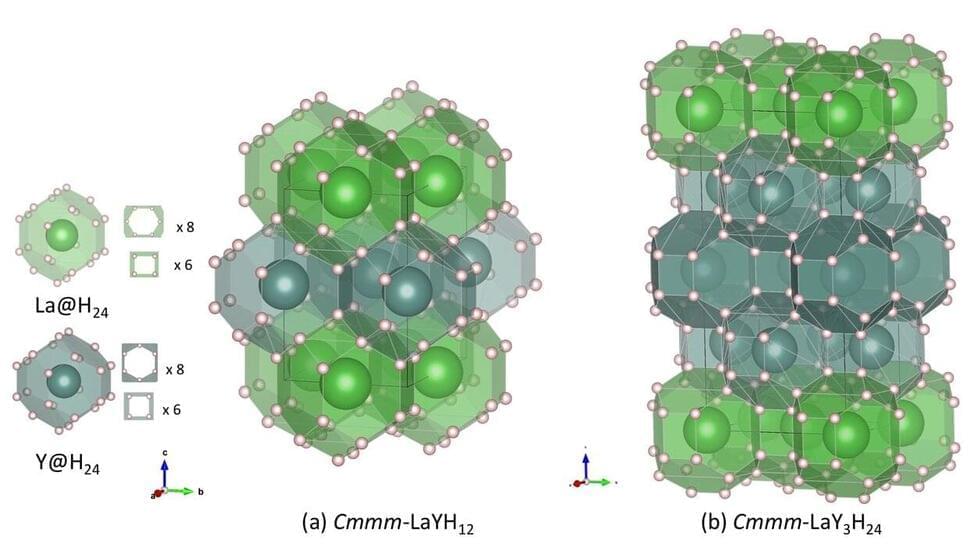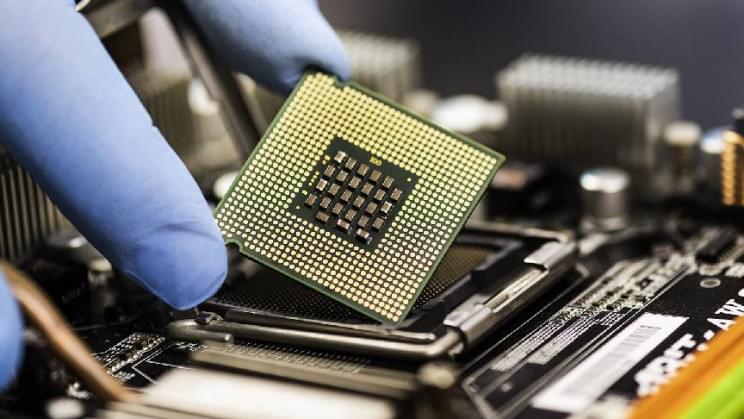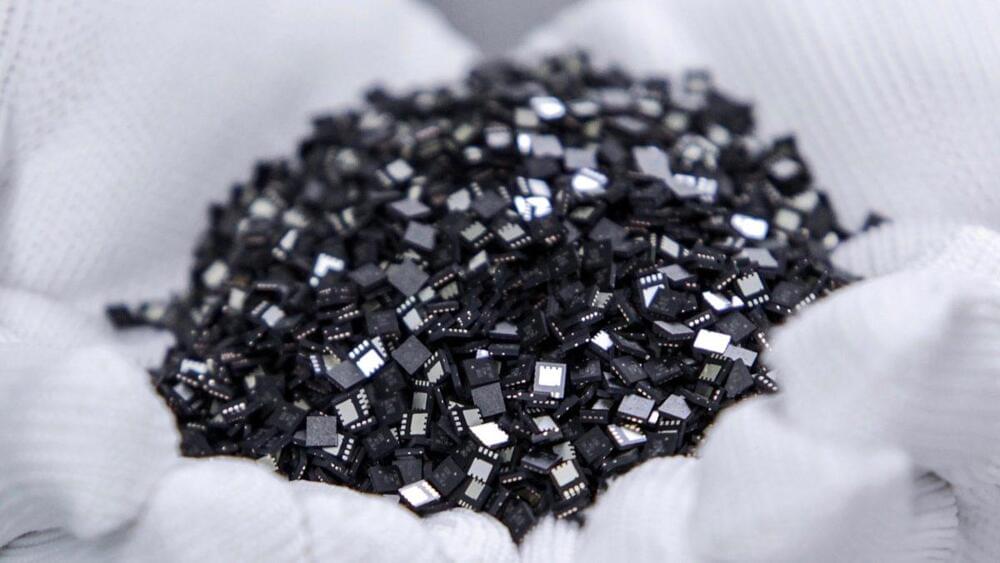The messy quantum soup of spin states allows for quantum entanglement across an entire material.


Intel has just announced their plans to continue Moore’s Law well into the next decade which promises us up to a 10x performance and efficiency increase through new hardware semiconductor approaches. For example with the help of 3D CPU Transistors or GAAFET. The breakthroughs revealed at IEDM 2021 demonstrate Intel is on track to continue the advancement and benefits of Moore’s Law well beyond 2025 through its three areas of pathfinding and maybe even beat its competitors TSMC and Samsung in the fab business.
–
TIMESTAMPS:
00:00 Moore’s Law isn’t dead.
01:41 What is Moore’s Law?
03:08 How Intel will continue Moore’s Law.
06:22 Intels Competitors.
09:16 Last Words.
–
#intel #hardware #mooreslaw
In this video I discuss technology shrinking: 2nm IBM’s microchip technology and 1nm transistors from TSMC. What is special about it?
#2nmIBM #2nmChip #1nmTSMC
WATCH NEXT:
➞ Chip Design Flow explained: https://www.youtube.com/watch?v=s9MBHzD9pj0
➞ What is special about Apple’s M1 chip? https://youtu.be/qrbBaaqDhqo.
➞ How to become a Hardware Engineer: https://youtu.be/7z0G_TmErT4
GEAR:
➞ Camera Sony Alpha 7 III: https://amzn.to/3dmv2O6
➞ Lens Sony 50mm F1.8: https://amzn.to/3weJoJo.
➞ Mic Rode: https://amzn.to/3w9PudV
***
➞ Support me on Patreon: https://www.patreon.com/AnastasiInTech.
➞ My Instagram: http://www.instagram.com/anastasi.in.tech/
➞ My Twitter: https://twitter.com/AnastasiInTech.
➞ Subscribe for new videos every week! ❤ And see you in comments.

EK®, the leading computer cooling solutions provider, is proud to unveil its Special Edition high-performance GPU water blocks for the NVIDIA® GeForce® RTX™ 3,070 Ti Founders Edition graphics card. The EK-Quantum Vector FE RTX 3,070 Ti D-RGB comes in two versions – Silver and Black, both featuring the aluminum outer shell and backplate in the same color, as well as the Plexi window and terminal illuminated with addressable D-RGB LEDs.
This water block comes with multiple ports, allowing great versatility. The performance is one of the key elements of the design, which is why this block features a 30% larger fin area compared to other water blocks from the Vector family.

The BC-160 mining card from XFX is now available in China.
Back in October, we reported that XFX is preparing its custom card for cryptocurrency mining. This card was supposedly using Navi 12 GPU, which to this date was more commonly known as ‘special’ GPU for Apple Mac or Radeon Pro V560. This GPU was never released for gamers though. More than 2 years since it was first introduced, AMD is now supplying Navi 12 chips for mining equipment.
In this video I discuss 3D microchips which will keep Moore’s law going.
#3Dmicrochips.
***
➞ Support me on Patreon: https://www.patreon.com/AnastasiInTech.
➞ Subscribe for new videos every week! ❤ And leave me a comment below!

Superconductivity is the disappearance of electrical resistance in certain materials below a certain temperature, known as “transition temperature.” The phenomenon has tremendous implications for revolutionizing technology as know it, enabling low-loss power transmission and maintenance of electromagnetic force without electrical supply. However, superconductivity usually requires extremely low temperatures ~ 30 K (the temperature of liquid nitrogen, in comparison, is 77 K) and, therefore, expensive cooling technology. To have a shot at realizing a low-cost superconducting technology, superconductivity must be achieved at much higher transition temperatures.
Materials scientists have had a breakthrough on this front with crystalline materials containing hydrogen, known as “metal hydrides.” These are compounds formed by a metal atom bonded with hydrogen that have been predicted and realized as suitable candidates for achieving even room-temperature superconductivity. However, they require extremely high pressures to do so, limiting their practical applications.
In a new study published in Chemistry of Materials, a group of researchers led by Professor Ryo Maezono from Japan Advanced Institute of Science and Technology (JAIST) performed computer simulations to expand the search for high-temperature superconductors, looking for potential candidates among ternary hydrides (hydrogen combined with two other elements).

This design can either double the performance of chips or reduce power use by 85%.
In May of 2021, we brought you a breakthrough in semiconductor materials that saw the creation of a chip that could push back the “end” of Moore’s Law and further widen the capability gap between China and U.S.-adjacent efforts in the field of 1-nanometer chips.
The breakthrough was accomplished in a joint effort, involving the Massachusetts Institute of Technology (MIT), National Taiwan University (NTU), and the Taiwan Semiconductor Manufacturing Co (TSMC), which is the world’s largest contract manufacturer of advanced chips. At the core of the breakthrough was a process that employs semi-metal bismuth to allow for the manufacture of semiconductors below the 1-nanometer (nm) level.
Now, IBM and Samsung claim they have also made a breakthrough in semiconductor design, revealing a new concept for stacking transistors vertically on a chip, according to a press release acquired by IE. It’s called Vertical Transport Field Effect Transistors (VTFET) and it sees transistors lie perpendicular to one another while current flows vertically.
This is a drastic change from today’s models where transistors lie flat on the surface of the silicon, and then electric current flows from side to side. By doing this, IBM and Samsung hope to extend Moore’s Law beyond the nanosheet threshold and waste less energy.
Full Story:

Microsoft’s attempts to steer Windows users toward the Edge browser are attracting notice. Can the Third Browser War around the corner?
Users of Microsoft’s Windows 10 and 11 operating systems have recently reported seeing unusual prompts when they attempt to download Google’s Chrome browser to their device, according to The Verge.
If Microsoft is indeed launching a third Browser War, can the mid-1990s be far behind? Men, put on your flat-front chinos or straight-leg jeans, women, put on a mini-skirt and knee socks, pop a disc with “The Macarena” into your car’s sound system, and head for the mall. There, Toy Story or Braveheart is playing, and you can stop by Starbucks for their new frozen Frappuccino.
If you’re lucky enough to have a home computer, a new company called eBay is selling Pez dispensers, and another new company named Amazon has just sold its first book: Fluid Concepts and Creative Analogies: Computer Models of the Fundamental Mechanisms of Thought by Douglas Hofstadter.
Full Story:

“The industry will see normalization and balance by the middle of 2022, with a potential for overcapacity in 2023 as larger scale capacity expansions begin to come online towards the end of 2022,” the research firm predicts.
Indeed, major semiconductor makers—including Intel, TSMC and Samsung—have all boosted investment in expanding chip capacity amid the current shortage. At the same time, the US government wants to spur more domestic chip manufacturing with billions in potential funding.
The big question is which sectors will see the semiconductor supplies improve to the point of overcapacity. Current shortage have ensnared a wide range of products, including PCs, graphics cards, video game consoles, in addition to cars, smartphones, and smart home devices.